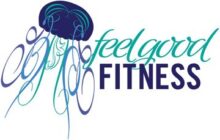There are still quite of lot of myths surrounding pregnancy and exercise. Here I aim to dispel some of the most common myths I hear.
- I can eat what I like:
This isn’t strictly true. Your body does need more calories to cope with demands put on it by growing a baby, so you may well find an increase in your appetite. It can also be true that you may get strong cravings for certain foods. These can be good or bad, and sometimes very odd. Similarly you may actually have food avoidance – I hated the smell and texture of meat and vegetables in both my pregnancies. So depending how you feel, the most important thing is to eat enough to keep your energy levels up and allow your body to grow a baby, and then think about being mindful of what your eating.
2. I shouldn’t lift weights:
This is a total myth. If you have never lifted weights in your life then starting at cross-fit level wouldn’t be a good idea, however, even a novice can lift light weights. If you were lifting weights before pregnancy then you can continue, if you didn’t, then start small, making modifications as you progress through the trimesters.
3. I need to take it easy:
You should listen to your body and rest when you feel you need to. after all it’s working double hard at the moment. Is being pregnant an excuse to sit on the sofa and watch box sets for the next 9 months? Probably not!
4. I need to stop doing my usual workout routine:
This really depends what you were doing. Most forms of exercise can be modified as you progress through the trimesters and that’s why it’s important to speak to your instructor or coach so they can advise. Certain sports such as combat and scuba diving will need to be stopped due to the risk factor involved, but running, weight lifting, Pilates and so can be modified.
5. I’ll put on loads of weight:
You will mostly gain a good few kilos before you give birth – anywhere between 10 and 20 to be precise! BUT this is 100% normal and necessary for the growth of your baby. Do remember however that it’s not all you; the placenta by itself can be around 1 kg, the baby itself say at an average of 3.5-4 kg, and then all the excess blood and fluid. Some women do gain very little and others more. Eat sensibly, move where you can and it won’t be too extreme.
6. I’ll never get my body back:
Pregnancy does have the ability to change our bodies, sometimes short term, sometimes more long term. Hormones can play a part  here, but that’s not to say you will never feel you again. Take it slow to start – maybe start with a postnatal Pilates class to build your core then progress up from there. In time you can definitely reclaim your body. With the right training and patience you may even end up being stronger and fitter than before!
here, but that’s not to say you will never feel you again. Take it slow to start – maybe start with a postnatal Pilates class to build your core then progress up from there. In time you can definitely reclaim your body. With the right training and patience you may even end up being stronger and fitter than before!
7. I should avoid stretching:
Untrue definitely. Yes the hormone relaxin does give a little more vulnerability to the joints and major overstretching could lead to permanent damage, However, some nice feel-good stretching to relieve back pain, or keep you supple will be just fine, a hot yoga class is probably not the best idea!
8. I’ll get loads of back pain:
Not necessarily. This one is quite individual, some do get back pain others just a mild discomfort and a few get nothing. Pregnancy can make former aches and pains better or it can make them worse. You won’t really know until it happens – or not. If it does, seeing a good physio can help, as well as keeping active and having a good base of core strength.
9. I can’t work my core anymore:
It is advisable to stop doing targeted core work such as sit ups, leg raises etc after 12 weeks, due to the pressure it puts on the abdominal wall. However, there are many other things that do work your core. Many of the movements in Pilates, although not directly working on your abs will help keep you strong. More functional type move such as lunges, squats with a band and the suspension system are also amazing for core work.
10. There’s no point as I won’t get fitter:
The NHS now has a list of recommendations why exercise in pregnancy is a great idea. Everything from keeping a good oxygen supply to the baby, reducing diabetes risk, and mental health are all on there. Ok so you won’t be training for a half marathon PB or lifting your heaviest yet, but keeping a good level of fitness will not only help prepare you and the baby for labour, but can help with a quicker recovery too.

